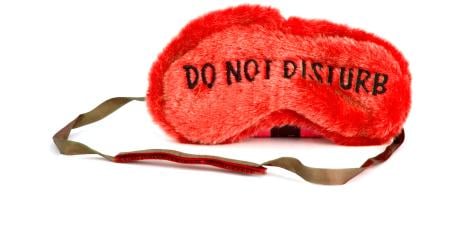Would a pharmacologically enhanced physician be a better physician? The debate over "cosmetic neurology" [1, 2] has, until now, focused on the patient as consumer but not on the special case of the physician as patient.
The availability of pharmacologic therapies for the treatment of sleep, attention, memory, mood, and endurance disorders introduces the option (subject to legal and ethical constraints) of using these agents to enhance cognitive function in healthy individuals. The anticipated availability within the next few years of more potent "smart pills" aimed at the molecular base of specific brain functions, and the more distant yet conceivable prospect of direct microelectronic brain interfacing to restore lost—or enhance existing—natural functions, raise many interesting and challenging ethical questions [3]. Neuroscience is supplying incrementally an affirmative answer to the question of whether the brain of the physician can be enhanced. Whether or how that goal should be pursued, however, is a question ripe for neuroethics.
The Case for Enhancement
The practice of medicine requires the utmost professional dedication. The proficient physician must master a daunting and constantly enlarging scientific knowledge base, analyze complex sets of clinical information, navigate the intricacies of the health care system, communicate effectively and compassionately with patients, sustain attention, be responsive on a moment's notice—day or night, and render careful judgments that have life and death implications. The most conscientious physician is, at best, subject to human limitations and cannot meet all the needs of his or her patients perfectly all the time.
There are a number of ways in which pharmacologic interventions could enhance professional performance. Wakefulness-promoting drugs might help physicians overcome disruptions in cognitive performance resulting from loss of sleep while on call. Stimulants might help them maintain mental focus during long hours of duty and frequent pager interruptions. Drugs to boost memory might help physicians retain more information from medical journals and details about the patients under their care.
Western medicine has traditionally drawn an ethical distinction between treatment, which aims to restore lost bodily function or preserve failing health, and enhancement, which aims to exceed normal capacity and has generally been understood to lie beyond the professional goals of medicine. Arguments in favor of enhancement often point out the difficulty in defining a bright line between the two and attempt to nudge the demarcation separating enhancement from therapy [4]. The question whether to enhance the physician, however, bypasses unresolved disputes over this distinction, insofar as the pursuit of certain enhancements could indirectlyfulfill the traditional goals of medicine.
Whereas some patients in primarily nonservice careers might request enhancing drugs for the purpose of gaining a personal competitive edge, physicians might consider their taking cognitive-enhancing medication altruistic rather than selfish. The physician who seeks pharmacologic enhancement for the purpose of serving his or her patients better strives to uphold the moral virtues of dutifulness, industriousness, and generosity and adheres to the utilitarian principle of providing the greatest good for the greatest number. The use of enhancing drugs to improve the professional's performance for the sake of the common good would seem more compelling than arguing for their use for the sake of gratifying an aspiration to personal achievement.
Whether pharmacologically augmented physician performance would deliver better patient care is, for the moment, a hypothetical question. As such, it is also a potentially testable question. Preliminary data is emerging in nonmedical categories of performance. Methylphenidate has been shown to decrease errors from inattentive driving in adolescents with attention-deficit hyperactivity disorder [5]. Whether methylphenidate or other stimulants could decrease performance errors by those without the disorder or by physicians is an untested question. In another study, donepezil was shown to improve retention of training on complex aviation tasks among licensed pilots without dementia [6].
Suppose that future well-designed controlled studies were to provide evidence that physician use of enhancing drugs could, for example, decrease the incidence of medical error. Convincing evidence supports a strong link between physician sleepiness and medical error, particularly among interns and residents [7, 8]. The sleep-deprived physician who desires to be available to meet the needs of patients might come to view the use of wakefulness-promoting or vigilance-enhancing drugs as an alternative to work-hour restrictions [9] and a responsible choice in the best interest of his or her patients.
The Case against Enhancement
Physicians recognize that no drug is without potential adverse side effects. Likewise, technological gains invariably entail potential harms. Decisions regarding interventions that modify brain function require an especially high standard of precaution because they penetrate to the core of human nature.
Safety is the first level of ethical scrutiny. Prior to their routine use in healthy individuals, cognitive performance-enhancing drugs must be shown to be at least reasonably safe in the short and long term. Among professionals, physicians, in particular, are accustomed to sacrificing their own interests for the sake of their patients and might willingly forgo a personal health safety measure. While intermittent sacrifices are laudable, persistent, amplified expense of mental effort without adequate rest might eventually compromise the physician's capacity to serve.
There is also the possibility that the physician's choice to use or refrain from taking cognitive function-enhancing drugs might not be entirely uncoerced. Suspending for the moment any current (and potentially revisable) legal restrictions, if their use were to become accepted, peer pressure might encourage more routine use, particularly if, in the end, reduced risk of harm to patients from medical error could be shown. Extending the expectation to take cognitive-enhancing drugs to physicians-in-training could become a more overt form of coercion.
It seems highly unlikely that professional societies, hospitals, and clinics (particularly the nonmilitary) would mandate that physicians take drugs to reduce medical error, were their use permissible. Some physicians might, nonetheless, choose to do so to compete more successfully in the health care market or to enhance academic productivity. These motivations could potentially drive the demand for brain-boosting drugs more powerfully than the altruistic intentions behind the initial decision to use them. Doing what it takes to keep up with supercharged peers might, in time, reshape the moral landscape of medicine. Physicians by nature are hard-working and frequently perfectionists. Sustained reliance on cognitive stimulants could accelerate the risk of physician burnout.
Pharmacologic enhancements are routinely banned in competitive sports because they confer an unfair advantage. In medicine, it is not the goals of competitive sport that would be jeopardized, but virtue. Confidence in performance-enhancing drugs introduces a subtle shift in emphasis from virtue to performance. One wonders whether the medicated physician who enhances productivity by taking a pill would be as virtuous as the physician who achieves the same level of productivity through effort, willpower, and perseverance. Blurring the distinction between professionalism and pharmacologic efficacy would undermine the former while placing undue emphasis on the latter as a solution to life's problems. If the physician's cognitive resources truly derive from the pharmacy, then the patient, as a consumer, may have the right to request better service from a more efficient, apparently enhanced health care provider.
Physicians who routinely took drugs to enhance their cognitive function could not justifiably withhold such drugs from their healthy patients who desired a similar professional edge or enhancement of job safety. If the focus of medical practice were to be diverted to supplying healthy individuals with cognitive performance-enhancing drugs to satisfy a potentially limitless appetite for personal perfection, then the practice of cosmetic medicine could become indistinguishable from standard medical care. In such a system, patients with medical disorders would compete with healthy patients for access to medical care, which is a limited resource. The care of the sick would be unacceptably compromised.
Conclusion
Limited forms of pharmacologic cognitive enhancement may be beneficial to the practice of medicine. Caffeine, for example, used in moderation can help to alleviate fatigue and drowsiness following night call. As a health care professional, the physician has the right to go without sleep if he or she believes that it is in the best interest of the patient. The healthy physician similarly has the right to be unmedicated. Routine pharmacologic stimulation of health care professionals will not necessarily lead to better medicine. Cognitive enhancement pushed to the extreme is likely to be counterproductive. Undue emphasis on the instrumental aspect of medicine would potentially neglect other important aspects of medical professionalism such as striving for humility, compassion, altruism, interpersonal communication, and human wisdom that are always needed at the patient's bedside.
References
- Chatterjee A. Cosmetic neurology: the controversy over enhancing movement, mentation, and mood. Neurology. 2004;63(6):968-974.
- Chatterjee A. The promise and predicament of cosmetic neurology. J Med Ethics. 2006;32(2):110-113.
- Cheshire WP. Drugs for enhancing cognition and their ethical implications: a hot new cup of tea. Expert Rev Neurother. 2006;6(3):263-266.
-
The President's Council on Bioethics. Beyond Therapy: Biotechnology and the Pursuit of Happiness. Washington, DC: US Government Printing Office; 2003:13-16. Accessed July 29, 2008.
- Cox DJ, Humphrey JW, Merkel RL, Penberthy JK, Kovatchev B. Controlled-release methylphenidate improves attention during on-road driving by adolescents with attention-deficit/hyperactivity disorder. J Am Board Fam Pract. 2004;17(4):235-239.
- Yesavage JA, Mumenthaler MS, Taylor JL, et al. Donepezil and flight simulator performance: effects on retention of complex skills. Neurology. 2002;59(1):123-125.
- Landrigan CP, Rothschild JM, Cronin JW, et al. Effect of reducing interns' work hours on serious medical errors in intensive care units. N Engl J Med. 2004;351(18):1838-1848.
-
Lockley SW, Barger LK, Ayas NT, Rothschild JM, Czeisler CA, Landrigan CP; Harvard Work Hours, Health and Safety Group. Effects of health care provider work hours and sleep deprivation on safety and performance. Jt Comm J Qual Patient Saf. 2007;33(11 Suppl):7-18.
- Nelson D. Prevention and treatment of sleep deprivation among emergency physicians. Pediatr Emerg Care. 2007;23(7):498-503.



